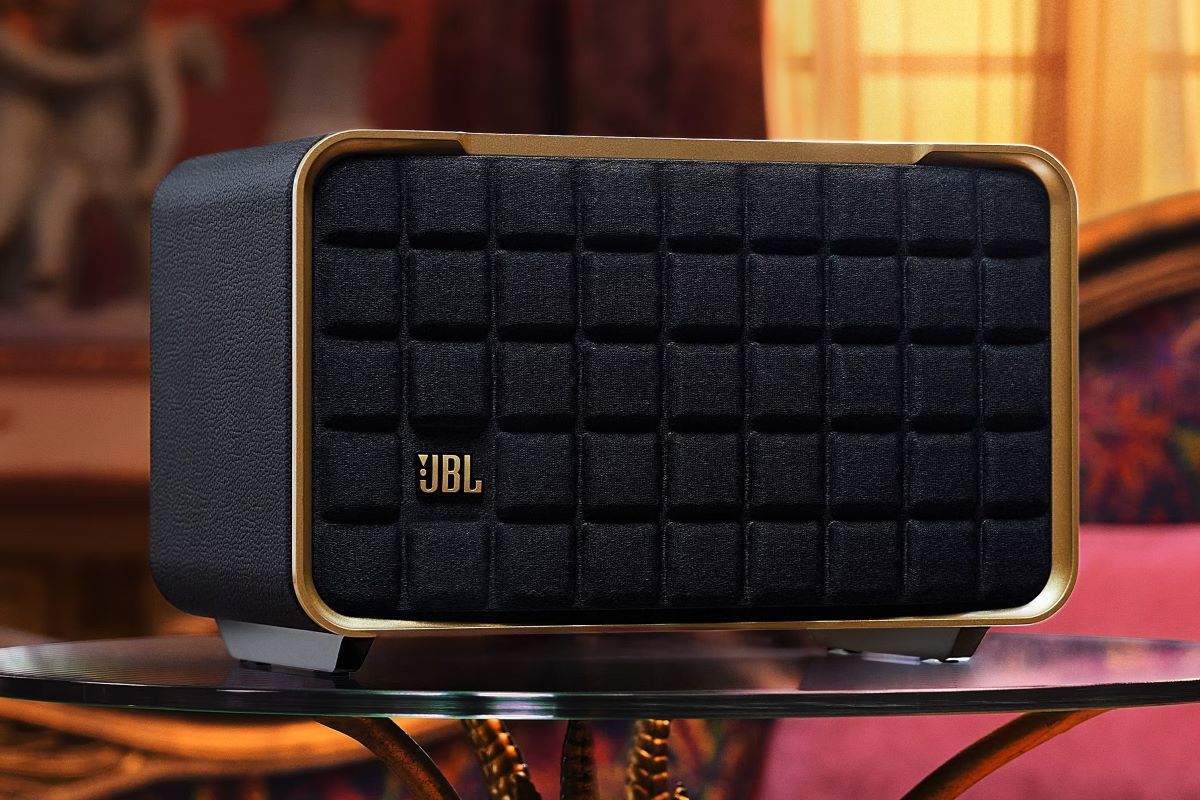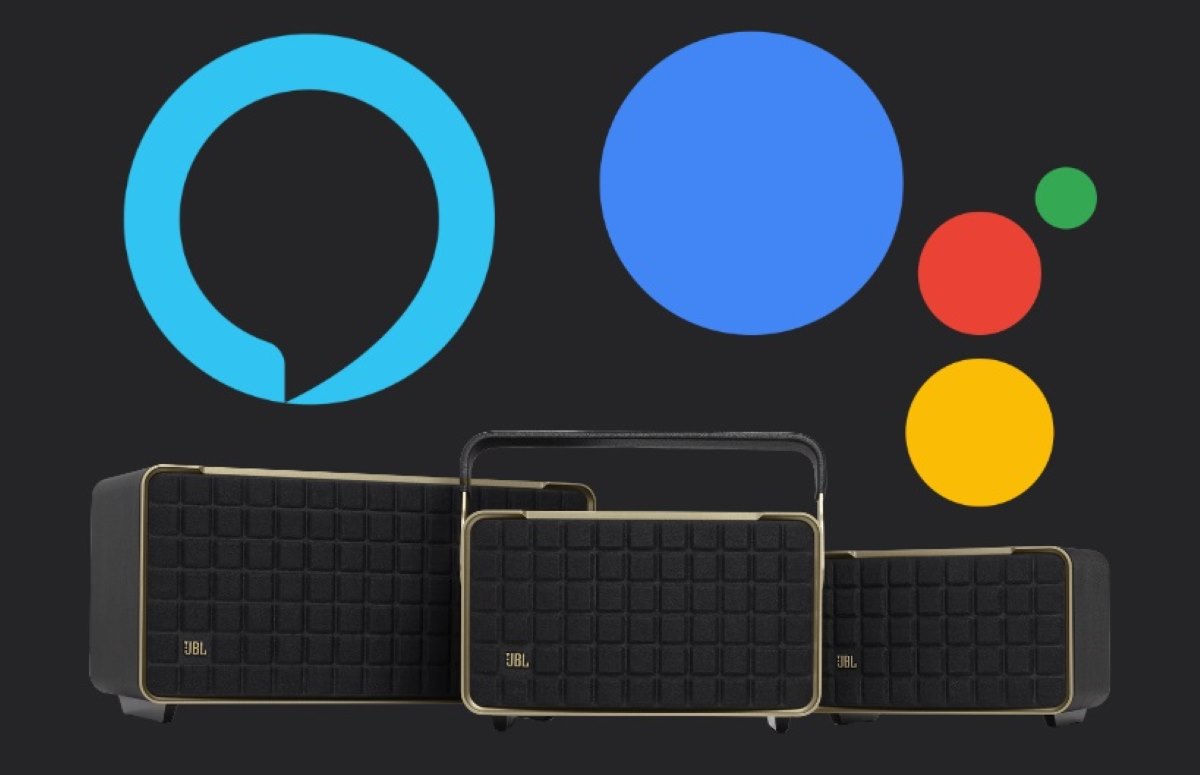JBL has introduced its latest retro-style smart speakers, marking the first time that both Google’s and Amazon’s voice assistants are integrated into a single device, a feat not achieved by Sonos.
Revealed at the IFA tech show in Berlin, Harman’s new JBL Authentics series includes the Authentics 200 ($329.99), Authentics 500 ($699.99), and the portable Authentics 300 ($429.99).
These speakers come equipped with both Amazon’s Alexa and Google’s Assistant, allowing users to activate either assistant at any time. For instance, you can instruct Alexa to play your “Sounds of the ’80s” playlist, and then have Google stop it if needed.
Historically, Google and Amazon have had a strained relationship, with issues such as the lack of a native YouTube app on Echo Show devices and incompatibility between their music streaming services on each other’s smart speakers.
However, recent collaboration on the Matter smart home standard suggests a warming of relations, and now their voice assistants are working together in a way that could benefit users.
According to Aaron Rubenson, vice president of Alexa at Amazon, users can ask either Alexa or Google Assistant to stop tasks—such as playing music or setting alarms—regardless of which assistant initiated the action.
Although the assistants are not directly linked and must be set up separately via JBL’s app, they are equipped with a Multi-Agent Experience (MAX) Toolkit.
This toolkit enables features like controlling each other’s timers and music and determining when to let the other assistant speak.
Marissa Chacko, director of product management for Google Assistant for Home, noted that the speakers are designed with audio focus software to prevent the assistants from speaking over one another.
For example, if Google starts streaming music and Alexa sets a timer, the music will lower in volume so that the timer can be heard.
These advancements mean that in households with multiple assistants, you don’t need to remember which assistant was used for a task—either one can manage it.
This also extends to smart home devices, though you still need to configure your devices separately on each platform. While this setup is slightly different from what is currently possible with two speakers, such as an Echo Pop and a Nest Mini, it does consolidate the functionality into a single speaker.
The JBL Authentics series will be available starting September 15 in Europe and September 17 in North America through JBL.com.

These high-end speakers feature Dolby Atmos, Bluetooth, Ethernet, and Wi-Fi connectivity, with designs inspired by the 1970s JBL L100 speaker.
The Authentics 300 is portable with an eight-hour battery, while the Authentics 200 and 500 are designed for home use. The Authentics 500 includes three one-inch tweeters, three 2.75-inch midrange woofers, a 6.5-inch down-firing subwoofer, and 270 watts of 3.1 channel sound with virtual Dolby Atmos.
The Authentics 200 features a pair of one-inch tweeters, a five-inch woofer, and a six-inch passive radiator.
When asked if these multi-assistant capabilities might extend to more affordable speakers or even Amazon’s and Google’s own devices, Chacko and Rubenson indicated that while there are no current plans, both companies are open to the possibility.
Chacko highlighted that the collaboration with Amazon was smooth and that this is a trial to gauge demand. Rubenson mentioned that the company is always open to discussing potential opportunities, including for its own devices.
Though third-party speakers have offered a choice between voice assistants for some time, JBL’s approach is unique in allowing simultaneous use. Sonos, for example, requires users to select either Google or Alexa at setup and does not support switching between them without accessing the app settings.
Having both assistants available could be advantageous since each has unique strengths. Google excels in general knowledge queries and calendar management, while Alexa offers features such as tracking Amazon packages or listening to Audible books.
However, the JBL speakers do not include some features of Google’s and Amazon’s hardware. For instance, there are no Google calling functions, and Alexa’s Guard features and wake word customization are not available.
Despite this, both companies have worked to minimize latency, and response times are comparable to first-party devices.
The motivation behind this collaboration is to enhance interoperability and encourage greater use of voice assistants. Although this integration is currently limited to a single, high-end speaker brand and does not involve the Matter standard, it represents a step toward more versatile smart home solutions.
True interoperability would involve the ability to seamlessly use multiple assistants across various smart speakers and devices in the future.







Leave a Reply